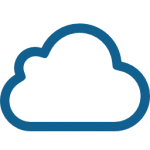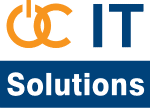Business Cloud Solutions
Public cloud, private cloud, hybrid cloud. What is cloud any way?
Business Cloud in simple terms is placing your files/folders or business applications on a server and allowing users to access the data from wherever they are. A good example of Public Cloud Software is Gmail and Google Docs. Users can place files on Google servers and access the data via a web browser from any location and at any time. Private cloud , however, is owned and managed by your organization. Any business can turn an office server to a private cloud and make it accessible from outside the office to its users. The server can be located in the business’s physical location or hosted and maintained in a data center.
What type of business cloud solutions is right for you?
Many small businesses prefer the private cloud because it offers more control and reduces costs. In most cases, it is more cost effective to purchase and maintain a server in your office instead of paying a third party provider to do it for you in exchange for a monthly fee. However, while this approach can save you a ton of money, it has a drawback. For users to access the data, the cloud server needs reliable, always-on internet connectivity. Internet outages can result in the outside users not being able to access the data available on the servers. However, the inside users still can access the files through your LAN (Local network).
OC IT Solutions has been helping many small and medium business pick the right cloud solution for a variety of business applications and file sharing purposes. Give us a call if you consider moving to the cloud so we can analyze all operational and financial aspects of such move as well as cloud technologies that fit your business needs.

It is safe to say that we all prefer to know in advance when something starts to go wrong before the damage gets too big to handle. Our system monitoring tools are designed to serve as the early warning mechanisms for your computers and network. It’s a small piece of software installed on each computer/server that notifies the system administrator about any potential issues as soon as they start developing. A good example of such issue is your computer’s hard drive that can deteriorate with no warning signs until it’s too late to do anything about it. Our tools monitor the computer hard drive and fire a notification to our Network Operation Center (NOC) staff so they could take the necessary steps in mitigating the risk.
Such powerful tool along with our 24/7 active maintenance services allows us to attend to every little issue and remedy a solution to keep your network up and running at all times.
 Our automated maintenance software does more than just monitoring the health of your network devices, it allows us to actively maintain your systems 24/7. Our virtual technicians perform the routine maintenance of each computer/server on your network on a pre-determined schedule for a fraction of what a network technician can cost your business.
Our automated maintenance software does more than just monitoring the health of your network devices, it allows us to actively maintain your systems 24/7. Our virtual technicians perform the routine maintenance of each computer/server on your network on a pre-determined schedule for a fraction of what a network technician can cost your business.
The world of telephony has changed, dramatically. Out with the old, expensive and bulky phone systems; in with the new, inexpensive and feature-rich IP telephone systems. You can now get a full fledged, powerful IP Phone system for what you used to pay for Voice mail only, and get features like:
Intra-branch extension to extension free calls, Voice mail, call forwarding, Find-me-follow me, call recording, call monitoring, ACD (Automatic Call Distribution), Ring Groups, Circular Groups, CRM integration, Call Accounting, Application sharing, Soft Phone, Video Conference, Audio Conference Bridge, Remote phones, Cell phone Apps, Video Phone, and many other features.

Public? Private? or, Hybrid?
What is cloud anyway? It is placing your files or your line of business software on a server in a Data Center and then allowing your users access to the files or software from wherever they are. A good example of Public Cloud Software is Gmail and Google Docs. You place your files on their servers and access your files and emails via your Internet browser.
Private cloud is when you make your own office server accessible from outside the office, or place the server inside a Data Center to be accessible by you or your employees. Many small businesses prefer the private cloud because they have more control over it. In most cases, it is more cost effective to keep the server in your office as opposed to paying a Data Center. This way, even if your Internet access is interrupted at the office, your on-site users can still access the files through your LAN (Local network).
Give us a call if you consider moving to the cloud so we could discuss all operational and financial aspects of your data migration to see what type of cloud options are available to your industry and how your business could benefit from available cloud technologies.

